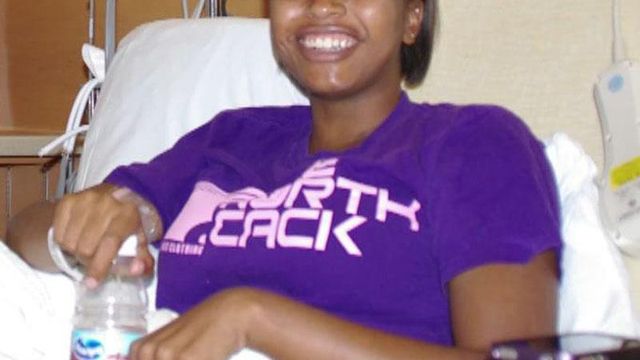College student fights colon cancer with study drug
Many people with advanced stage colorectal cancer run out of treatment options because their tumors don't respond to chemotherapy or other drugs. Researchers at UNC Hospitals are hopeful that a study drug may offer those patients hope.
Posted — UpdatedFor Morgan Throckmorton, who was diagnosed with Stage 4 colon cancer in 2009, the study drug provided a chance at getting better and fighting a disease she never expected to get. When she was diagnosed, Throckmorton was in graduate school studying psychology.
"The whole semester, I wasn't feeling good at all," she said.
After several trips to the doctor, she got a CT scan and then a colonoscopy. Throckmorton's mother and grandmother had been diagnosed with breast cancer, but she found out following those tests that she had colon cancer. Soon after, the cancer began to spread.
"It spread to my lymph nodes and then it spread to my liver," she said. "Just recently we found out that it had spread to my lungs."
Throckmorton had a partial colonectomy at UNC Hospitals and then started chemotherapy. Following her surgery, doctors tested Throckmorton's tissue samples to look for a particular mutation that her cancer may have contained.
Through testing, UNC gastrointestinal oncologist Dr. Bert O'Neil confirmed that Throckmorton tested positive for the K-RAS genetic mutation, a condition present in about a third of colon cancer cases.
"It's a little bit like a light switch that should be off, but it's stuck on the on-position," O'Neil said.
The K-RAS mutation generally means that cancer will have a harder time responding to standard therapy.
Throckmorton agreed to be a part of the UNC-led trial to test Regorafinib, a new drug that could shut off the gene. Because it's a double-blind study, Throckmorton wasn't guaranteed that she'd get the drug or if it would even work.
"I just figured if I was going through this I might as well have people learn from it and maybe help other people," she said.
Now on the fourth of five treatments, Throckmorton recently found out that the tumors in her lungs are getting smaller.
The study is available at about 15 different cancer treatment centers and several individual practices refer patients with metastatic cancer for enrollment.
• Credits
Copyright 2024 by Capitol Broadcasting Company. All rights reserved. This material may not be published, broadcast, rewritten or redistributed.





